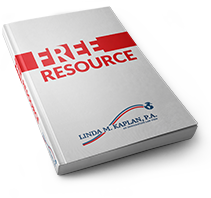There has been much in the news recently about “extreme vetting.” Last month when I wrote a blog about the Immigrant Investor program which allows one to obtain U.S. permanent residence status though an investment, one of my readers (and good friend) asked about whether the investors were subjected to security checks. This question gave me the idea to write about security checks for foreign nationals wishing to enter the U.S. This blog will discuss the vetting for non-immigrants seeking to enter the U.S. for a temporary visit without a visa. The vetting for non-immigrants requiring a visa and for immigrants (including refugees) will be discussed in later blogs.
The lowest level of vetting for entry to the U.S. is for those who can enter on the visa waiver program (VWP) which allows citizens from 38 countries to enter for up to 90 days without obtaining a visa. The countries selected as visa waiver countries generally includes countries with high-income economies and a high Human Development Index (HDI) score. The HDI score includes statistics regarding life expectancy, education and per capital income. The VWP list includes most European Union Countries and other developed countries such as Australians, Chile, Japan, Singapore, Chile and South Korea. A completer list of VWP countries can be found here.
Under the Visa Waiver Program Improvement and Terrorist Travel Prevention Act of 2015, citizens from visa waiver countries who have previously traveled to Iran, Iraq, Libya, Somalia, Sudan, Syria, or Yemen on or after March 1, 2011 and persons who are dual citizens of Iran, Iraq, Sudan or Syria do not qualify for the visa waiver program. These people are required to obtain a visa and undergo the additional vetting that is inherent in the visa application process.
Those who wish to travel on the VWP must have a travel purpose that is permitted on a Visitor (B) visa. They may enter the U.S. for short term business trips, tourism, vacation, visits to friends or relatives, medical treatment, participation in social events, participation in amateur musical, sports or similar events or contests, and for enrollment in a short recreational course of study not for credit toward a degree.
Those who wish to travel to the U.S. under the VWP must obtain authorization through the Electronic System for Travel Authorization (ESTA) prior to boarding their flight (or sea carrier) to the U.S. To enter on the VWP, a person must have an e-passport with an embedded electronic chip. The ESTA application collects biographic information including names of parents, employment information, social media information (this is optional), proposed travel information and additional questions related to communicable diseases, arrests, fraud in obtaining entry to the U.S., and previous immigration violations. A person who has recently been denied a visa for any reason is likely not to be able to obtain ESTA approval.
With heightened concern about immigration some may question whether we should allow people to enter the U.S. without a visa. When considering this question, one should consider that U.S. citizens can travel to some 160 countries without prior application for a visa. The other consideration is that citizens of the 38 VWP countries are required to obtain ESTA authorization and that additional screening is done by TSA of all international passengers. TSA obtains the manifest information prior to boarding. This manifest list allows DHS to perform security checks against federal watch lists prior to boarding. TSA works closely with the intelligence and law enforcement communities to share information. TSA also has access to details about past entries to the U.S. and past travel reservations through frequent flyer programs. TSA has described the procedures as an “intelligence- driven, risk based analysis” of passenger data.
Later blogs will discuss the vetting for those who are required to obtain a visa for temporary visits and those who seek to enter as an immigrant.
- Refugees, Asylum, and other humanitarian relief. - February 9, 2024
- Florida Anti-Immigrant Legislation - May 30, 2023
- Undocumented Immigrants Pay Taxes—Even Income Taxes. - April 25, 2023


